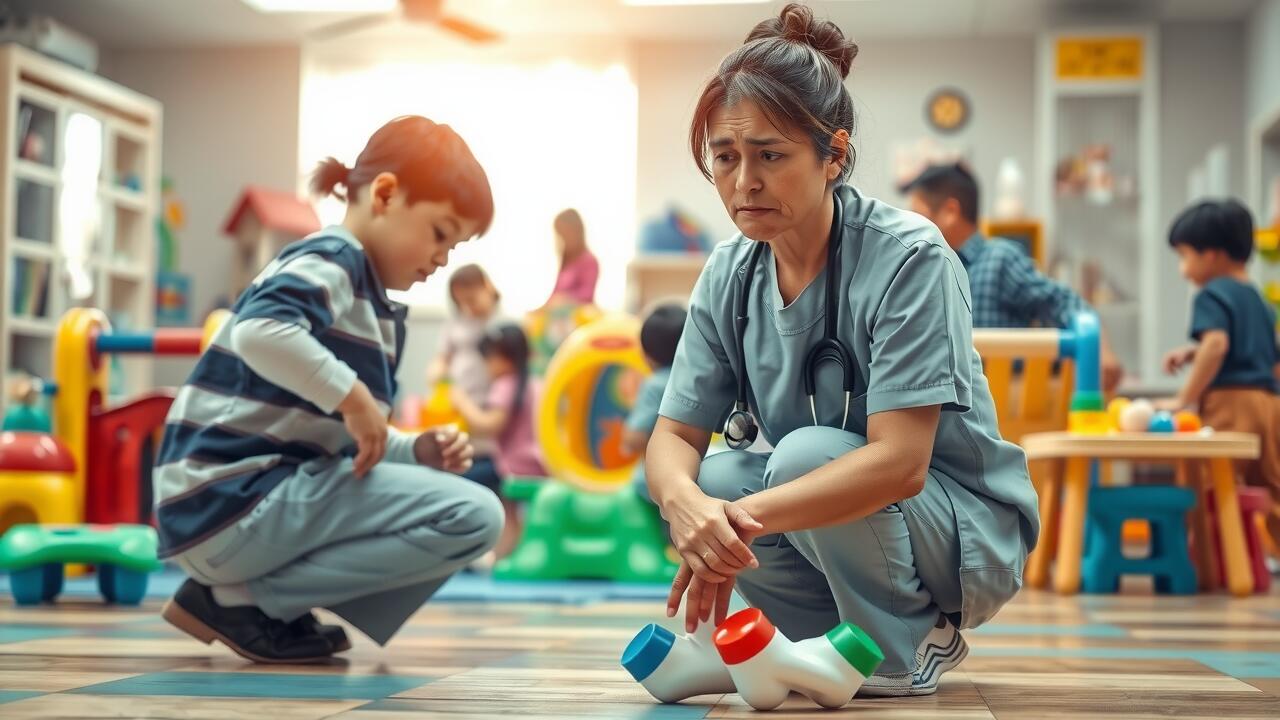How do you know if daycare is bad?

Negative Reviews from Parents
Parent feedback can provide valuable insights into the quality of a daycare facility. When multiple parents express dissatisfaction regarding their experiences, it raises a red flag. Common complaints often include issues with staff attentiveness or concerns about safety protocols. Reading through these reviews can help prospective parents gauge the overall environment and whether it aligns with their expectations for quality childcare.
Negative reviews can also highlight issues that may not be immediately apparent during an initial visit. Complaints regarding communication, discipline methods, or staff turnover can indicate deeper operational problems. It's beneficial for parents to consider the overall trend in reviews rather than focusing on isolated incidents. A consistent pattern of negative feedback may warrant further investigation before committing to a daycare.
Analyzing Online Feedback
Online platforms provide a wealth of information about daycare facilities. Parents often share their experiences, which can unveil potential issues or highlight positive aspects of a situation. Reading through reviews on social media, dedicated daycare review sites, and local community boards can give you a clearer picture of the environment. Look for patterns in comments, especially repeated concerns regarding safety or staff behavior.
While some negative feedback may stem from isolated incidents, consistent remarks about specific problems warrant attention. It's important to consider not only the star ratings but also the content of the reviews. Responses from daycare providers can offer insight into how they handle complaints. A lack of engagement from management regarding criticism may indicate deeper issues within the organization.
Unhygienic Conditions
The cleanliness of a daycare environment is crucial for the health and safety of children. Observing the state of bathrooms, play areas, and eating spaces can provide immediate insights. For instance, if surfaces appear dirty or smell unpleasant, these signals suggest inadequate cleaning protocols. Toys and materials should also be sanitized regularly to prevent the spread of germs, and it is essential to check for any signs of pests.
Frequent reports of unpleasant odors or visible filth are major red flags. Inspecting the condition of outdoor play equipment can also be telling; rusted or poorly maintained items may indicate neglect. A daycare should prioritize hygiene and maintain a welcoming atmosphere that fosters a sense of safety. Parents should feel comfortable asking staff about their cleaning routines and policies regarding illness.
Signs of Poor Sanitation Practices
A clean and sanitary environment is crucial for the health and safety of children in daycare settings. Observing areas that exhibit signs of neglect can raise serious concerns. Look for dirty floors, cluttered spaces, and unwashed toys. Such conditions can harbor germs and lead to illness among children. Additionally, bathrooms should be frequently checked for cleanliness. Inconsistent upkeep can indicate a lack of proper hygiene protocols.
Another important factor to consider is the presence of unpleasant odors. Strong smells can suggest inadequate cleaning practices or even potential pest problems. Staff members should demonstrate an awareness of sanitation by regularly disinfecting surfaces and maintaining a tidy environment. If hygiene is not prioritized, it may reflect broader organizational issues that could impact your child's well-being.
Limited Communication with Parents
A daycare that lacks open lines of communication can create a barrier between parents and staff. When parents feel uninformed about their child's daily experiences, it can lead to anxiety and distrust. Consistent updates regarding a child’s behavior, milestones, and any concerns should be part of the daycare’s policy. Without this communication, parents may question the environment their child is in.
Daily interactions and regular meetings foster a collaborative relationship between caregivers and parents. A daycare that is open to dialogue encourages families to share concerns and provide feedback. If a daycare does not prioritize updates or remains unresponsive to inquiries, it may indicate underlying issues. Communication should be transparent and frequent to ensure that both parties work together in the child's best interest.
Importance of Parent-Staff Interactions
Effective communication between parents and staff is a cornerstone of a positive daycare experience. When parents are regularly updated about their child's progress, activities, and any challenges, trust is fostered. This transparent dialogue can also allow parents to voice concerns or ask questions, ensuring they remain actively involved in their child's development.
When staff members take the initiative to engage with parents, it reflects a commitment to the child's well-being. Regular interactions can reveal insights about the child’s behavior or social interactions. A daycare where staff share both achievements and areas needing improvement is likely to have a more supportive environment for children, contributing to their overall growth and happiness.
FAQS
What are some common signs that a daycare might be bad?
Common signs include negative reviews from parents, unhygienic conditions, limited communication with parents, and a lack of transparency in staff interactions.
How can I analyze online feedback about a daycare?
You can analyze online feedback by reading reviews on multiple platforms, checking for patterns in complaints, and looking for responses from the daycare to parent concerns.
What specific signs indicate poor sanitation practices in a daycare?
Signs of poor sanitation practices include visible dirt or grime, unpleasant odors, overcrowded spaces, and a lack of cleaning supplies available for use.
Why is communication between parents and daycare staff important?
Communication is vital as it fosters trust and ensures that parents are informed about their child's well-being, development, and any concerns that may arise.
What should I do if I suspect my child's daycare is not providing a safe environment?
If you suspect your child's daycare is not safe, document your concerns, communicate with staff or management, and consider finding alternative childcare options if necessary.